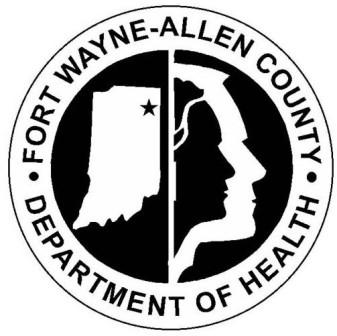
A news release from the Allen County Department of Health:
Low-risk COVID-10 exposure on 2/27/2020
(March 11, 2020) – Health officials are notifying the community of a low-risk exposure to a presumptive positive COVID-19 case during the Fort Wayne Home and Garden Show.
Allen County Department of Health officials learned Wednesday an individual who has since received a positive COVID-19 diagnosis was at the Fort Wayne Home and Garden Show at the Allen County War Memorial Coliseum for a limited amount of time February 27. The public risk from this exposure is very low.
“With the novel coronavirus COVID-19 declared a pandemic by the World Health Organization today, low-risk exposures like this will likely occur throughout the community for the next several months.” said Allen County Health Commissioner Dr. Deb McMahan. “Community members should take precautions collectively to protect themselves and others by washing hands frequently, monitoring themselves for symptoms and avoiding work and public gatherings when sick.”
Memorial Coliseum general manager Randy Brown said his staff has been utilizing increased cleaning efforts and provided hand sanitizer stations at events since COVID-19 became more widespread issue earlier this year. People who have attended events at the Coliseum since February 27 are not at increased risk of exposure.
With the COVID-19 incubation period of 14 days and the average person exhibiting symptoms by day 5, anyone infected from this exposure would likely already be showing symptoms. However, out of an abundance of caution since the incubation period ends March 12, visitors to the show on February 27 should watch for symptoms for the next 24 hours.
The Department recommends the following to February 27 Fort Wayne Home and Garden Show visitors:
- Go about routine activities like working or going to school, but through March 12 watch for the development of symptoms like fever, cough, sore throat and shortness of breath.
- Take your temperature twice a day and track the results through March 12. If you develop a fever of 100 degrees Fahrenheit or higher AND a cough, call your family doctor who will determine your best course of action. DO NOT go to an emergency room unless you are also having chest pain and/or shortness of breath or other emergent issue.
- When you call the doctor, be prepared with the date you think you were exposed, your symptoms, any chronic health problems you may have (like heart or lung disease, diabetes, etc.) and have a list of your medications readily available. If you work in a setting with many people or vulnerable populations like the sick or elderly, please let your provider know.
Coronaviruses, including COVID-19, are most commonly spread from an infected person to others through:
- Respiratory droplets released into the air by coughing and sneezing;
- Close, prolonged personal contact, such as touching or shaking hands;
- Touching an object or surface with the virus on it, then touching your mouth, nose, or eyes before washing your hands; and
- Rarely, fecal contamination.
The COVID-19 virus was first identified in Wuhan City, Hubei Province, China and has rapidly spread to countries around the world, including the U.S. Allen County has no confirmed or suspected cases at this time, but the state has continued to confirm new cases each day since the first was identified in Indiana March 6. The Indiana State Department of Health is updating the state case count on their website at https://www.in.gov/isdh/28470.htm.
Department officials want to remind the public as cases continue to be confirmed throughout the state, preparation (and not panic) is important. The best way to protect yourself from any respiratory illness is to:
- Wash your hands often with soap and water for at least 20 seconds. If soap and water are not available, use an alcohol-based hand sanitizer.
- Avoid touching your eyes, nose, and mouth with unwashed hands.
- Avoid close contact with people who are sick.
- Stay home when you are sick.
- Cover your cough or sneeze with a tissue, then throw the tissue in the trash.
- Clean and disinfect frequently touched objects and surfaces.
- Please practice extra precautions if you work in facilities that would expose a high number of immune-compromised or highly-susceptible populations, such as long-term care facilities, congregate living situations or correctional facilities.
The CDC does not recommend people who are well wear a facemask to protect themselves from respiratory illnesses, including COVID-19. You should only wear a mask if a healthcare professional recommends it. A facemask should be used by people who have COVID-19 and are showing symptoms to protect others from the risk of infection.